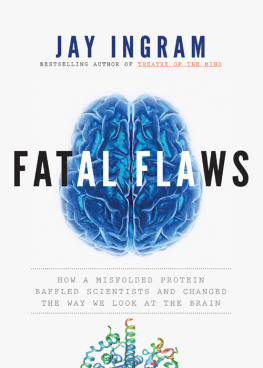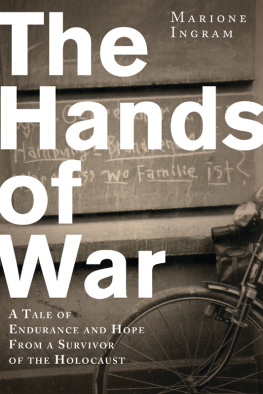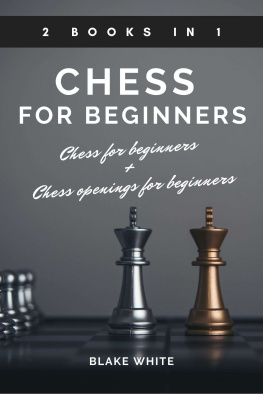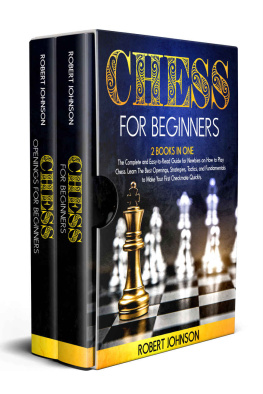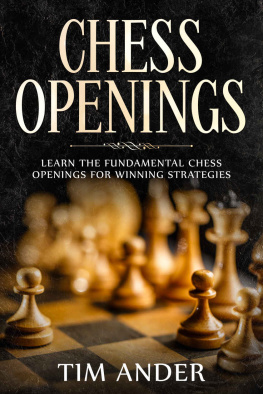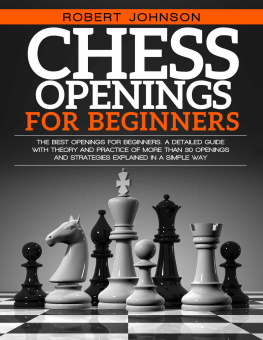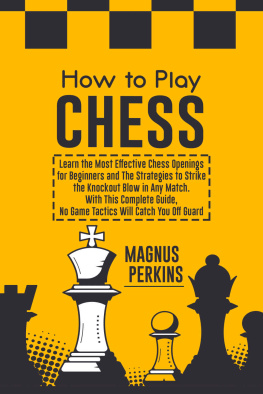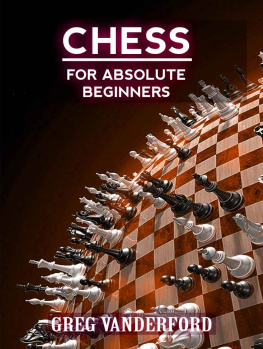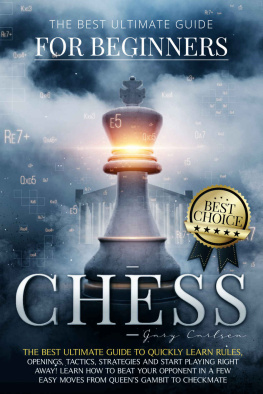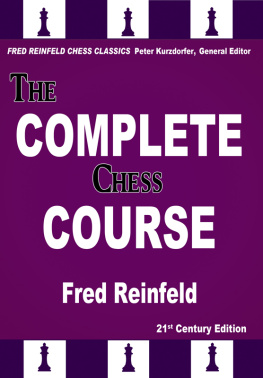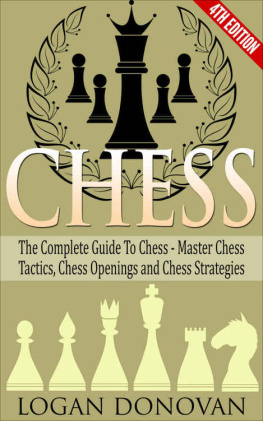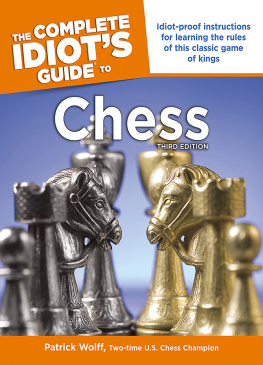Ingram - Chess: The Complete Beginners Guide to Playing Chess: Chess Openings, Endgame and Important Strategies
Here you can read online Ingram - Chess: The Complete Beginners Guide to Playing Chess: Chess Openings, Endgame and Important Strategies full text of the book (entire story) in english for free. Download pdf and epub, get meaning, cover and reviews about this ebook. year: 2016, genre: Children. Description of the work, (preface) as well as reviews are available. Best literature library LitArk.com created for fans of good reading and offers a wide selection of genres:
Romance novel
Science fiction
Adventure
Detective
Science
History
Home and family
Prose
Art
Politics
Computer
Non-fiction
Religion
Business
Children
Humor
Choose a favorite category and find really read worthwhile books. Enjoy immersion in the world of imagination, feel the emotions of the characters or learn something new for yourself, make an fascinating discovery.

Chess: The Complete Beginners Guide to Playing Chess: Chess Openings, Endgame and Important Strategies: summary, description and annotation
We offer to read an annotation, description, summary or preface (depends on what the author of the book "Chess: The Complete Beginners Guide to Playing Chess: Chess Openings, Endgame and Important Strategies" wrote himself). If you haven't found the necessary information about the book — write in the comments, we will try to find it.
Chess: The Complete Beginners Guide to Playing Chess: Chess Openings, Endgame and Important Strategies — read online for free the complete book (whole text) full work
Below is the text of the book, divided by pages. System saving the place of the last page read, allows you to conveniently read the book "Chess: The Complete Beginners Guide to Playing Chess: Chess Openings, Endgame and Important Strategies" online for free, without having to search again every time where you left off. Put a bookmark, and you can go to the page where you finished reading at any time.
Font size:
Interval:
Bookmark:
Chess
The Complete Beginners Guide to Playing Chess
Chess Openings, Endgame and Important Strategies
By Henry Ingram
This document is geared towards providing exact and reliable information in regards to the topic and issue covered. The publication is sold with the idea that the publisher is not required to render accounting, officially permitted, or otherwise, qualified services. If advice is necessary, legal or professional, a practiced individual in the profession should be ordered.
- From a Declaration of Principles which was accepted and approved equally by a Committee of the American Bar Association and a Committee of Publishers and Associations.
In no way is it legal to reproduce, duplicate, or transmit any part of this document in either electronic means or in printed format. Recording of this publication is strictly prohibited and any storage of this document is not allowed unless with written permission from the publisher. All rights reserved.
The information provided herein is stated to be truthful and consistent, in that any liability, in terms of inattention or otherwise, by any usage or abuse of any policies, processes, or directions contained within is the solitary and utter responsibility of the recipient reader. Under no circumstances will any legal responsibility or blame be held against the publisher for any reparation, damages, or monetary loss due to the information herein, either directly or indirectly.
Respective authors own all copyrights not held by the publisher.
The information herein is offered for informational purposes solely, and is universal as so. The presentation of the information is without contract or any type of guarantee assurance.
The trademarks that are used are without any consent, and the publication of the trademark is without permission or backing by the trademark owner. All trademarks and brands within this book are for clarifying purposes only and are the owned by the owners themselves, not affiliated with this document.
Lets begin by asking an important question, Why should you play chess?
Do you want to become an expert and master all the necessary skills and strategies?
Surely, many of you will buy this book, but will doubt your ability to successfully play chess. A general misperception is that chess is only meant for those over fifty, and that it is rarely played by children or teenagers. In fact, chess is extremely popular among people in their teens, twenties, and early thirties. Today, chess is played in major countries around the world and is part of many game tournaments.
You may feel anxious about getting started with chess, because you think its only a game for those who are exceptionally intelligent or clever. The truth is most people become chess experts, because they read many books and/or learn the skills and master them from their acquaintances.
Amongst all the invented games, chess is the game of royalty, held in considerable prestige throughout the centuries. Originally invented to be played by two intellectually curious players in the 6 th century AD, over the years, it has evolved into its present form. One player takes the black pieces and the other takes the white pieces. They use their army of chess pieces until one player puts the others king in a situation where they have no choice but to surrender: checkmate.
Chess exercises and stretches the mind; it develops important mental abilities that are useful in all aspects of life. It teaches critical thinking, concentration, problem solving, abstract reasoning, evaluation, strategic planning, pattern recognition, and creativity. Chess will teach you how to better able analyze situations and focus on important factors by eliminating distractions. The game is self-motivating. Your goal will be to attack and defend your key pieces, and fight your way to checkmate.
The book is a perfect guide for both beginners and experts. You will learn the basics of chess, learn about how each piece sits on the board, master the moves and rules, and learn all the strategies that will help you win all your matches against your opponent. Learn more about this game of kings by reading on.
Chess dates back more than 1500 years. The game may have originated in India in the 6 th century AD (or sometime earlier, in the 5 th century AD). Some historians, however, claim that the game likely originated in China. Records are unclear. But, most evidence points to the game starting in India, and later spreading to Persia. After Arabs conquered Persia, chess spread across the Muslims world. Later, it reached Southern European countries.
Modern chess evolved in Europe beginning in the 15 th century. The game ruled countries and the period was referred to as the Romantic Chess Era. In the 1800s, the game was characterized by clever combinations of moves, a swashbuckling attitude, and brash sacrifices. Winning wasnt that important; rather, style was what mattered most. The game focused more on ones creative expressions than on technical skills or long-term strategies. Soon after, chess moved into the Dynamism Era.
At the beginning of the 19 th century, chess, in its modern form, became a part of tournaments and championships. The first ever World Chess Championship was held in 1886. In the early 20 th century, chess took a gigantic leap forward and a chess federation was established, which set standard chess rules. In the 21 st century, chess popularity skyrocketed and software was developed. Players can also play chess online.
Chess originated in the 6 th century in Indias Gupta Empire. The game was called Chaturanga. This word translates from the four military divisions: cavalry, chariotry, infantry, and elephantry. These forms have now evolved into modern pieces: knight, rook, pawn, and bishop.
Chess later moved from India to Persia, and soon became an important part of Persian education (for the noble and elite classes). The Persians called it Chatrang. It was later renamed Shatranj, because Arab Muslims struggled with the ch and ng sounds. New rules were invented in this period.
After some time, players started to use the word shah (meaning King in Persian) whenever they would attack the opponents king. They also used the term, shah mat, meaning helpless king in Persian. In the modern game, this translates as checkmate. Checkmate happens when the opponents king cant escape an incoming attack or defend himself.
Chess later spread to many other countries; other variants of the game began to take shape. Silk traders, pilgrims, and other people soon carried chess to other areas. Slowly, the game became a game for the masses, rather than one only played by the elite. In the 10 th century, chess moved further into Europe, and it was here that the game began to develop rapidly.
Many historical figures were avid chess players, including King Ferdinand and Queen Isabella of Spain, Euler (the famous mathematician), and Benjamin Franklin. For these people, chess was more than a mere idle amusement. By playing the game, they were able to hone valuable qualities, such as foresight, perseverance, and circumspection.
The laws of chess, or the rules of the game, refer to certain rules that determine how one should play the game. While the origins of chess are somewhat vague, the modern rules of chess first originated in the Middle Ages. The rules have been continuously modified.
In previous centuries, rules also varied from place to place. The world chess organization has now set universal standardized rules (which are slightly modified from national ones). Fast chess, chess variants, online chess, and correspondence chess have their own slight rule variations.
Font size:
Interval:
Bookmark:
Similar books «Chess: The Complete Beginners Guide to Playing Chess: Chess Openings, Endgame and Important Strategies»
Look at similar books to Chess: The Complete Beginners Guide to Playing Chess: Chess Openings, Endgame and Important Strategies. We have selected literature similar in name and meaning in the hope of providing readers with more options to find new, interesting, not yet read works.
Discussion, reviews of the book Chess: The Complete Beginners Guide to Playing Chess: Chess Openings, Endgame and Important Strategies and just readers' own opinions. Leave your comments, write what you think about the work, its meaning or the main characters. Specify what exactly you liked and what you didn't like, and why you think so.


